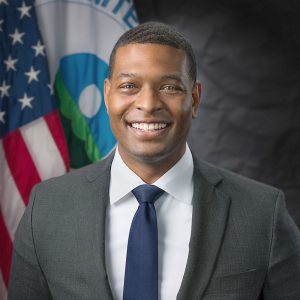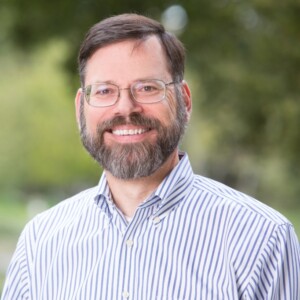Mental Health in Tribal, Rural Communities
Mental health concerns for Americans have significantly increased during the COVID-19 pandemic. Elevated levels of adverse mental health conditions, substance use, and suicidal ideation were reported by adults in the United States in June 2020. The prevalence of symptoms of anxiety disorder was approximately three times those reported in the second quarter of 2019, and prevalence of depressive disorder was approximately four times that reported in the second quarter of 2019. In the second episode of a four-part series examining the COVID-19 response effort in Southwest Colorado, the Keystone Policy Center examines expanding access to mental health services in tribal and other rural communities.
Listen to more episodes of the Keynotes Podcast.
Episode Transcript
[Ernest House, Jr.]
There were two young people who unfortunately committed suicide in my tribal community. And in the state of Colorado, the Southwestern slope in general has a lot of very high numbers of teen suicide rates. And I didn’t want the conversation around the mental health need to miss the tribal communities because there was potential lack of communication or because the strength of that relationship was not there.
[Marques Chavez]
Thank you for joining us for the second episode of Keynotes, a podcast from the Keystone Policy Center, and the second episode in our series examining our COVID-19 response effort among tribal communities in Southwest Colorado. Last time we highlighted the food response effort and the broader need to develop a food security system for rural communities in the Southwest region of the United States. On this episode, we are going to discuss how Keystone partnered with state government, tribal government, and community leaders to try to meet the skyrocketing need for mental health services for the rural communities of Southwest Colorado, which have only exacerbated during the COVID-19 pandemic. According to an article published in August by the Centers for Disease Control and Prevention, elevated levels of adverse mental health conditions, substance use, and suicidal ideation were reported by adults in the United States in June 2020. The prevalence of symptoms of anxiety disorder was approximately three times those reported in the second quarter of 2019, and prevalence of depressive disorder was approximately four times that reported in the second quarter of 2019. I doubt this is a surprise to anybody. The bottom line, mental health concerns for Americans have significantly increased during the COVID-19 pandemic.
(music transition)
And yet, this is another issue that has disproportionately affected American Indian and Alaska Native communities. Again, I reference reports released by the CDC in 2018 and 2019, which state that Native and Indigenous people in America reported experiencing serious psychological distress at a rate 2.5 times more than the general population; and the suicide death rate for younger Native and Indigenous people between the ages of 15-19 is more than double that of non-Hispanic white persons. It stands to reason that those higher rates of mental health distress among native and indigenous people would also grow during the pandemic. And the rate for mental health service utilizations among American Indian and Alaska Native communities is alarmingly low—for a number of factors.
That is why starting in early 2019, Keystone Policy Center began working with Colorado elected officials, tribal leaders, and the surrounding communities to address the mental health needs in Southwest Colorado. Ernest House Jr, the director of Keystone’s American Indian/Alaska Native program, led the initiative partnering with tribal leaders and the Colorado Liutenant Governor’s office to conduct a series of mental health listening sessions to hear from residents of Southwest Colorado and learn about the needs related to mental health in the region.
[Ernest House, Jr.]
I mean the mental health needs, especially this was a conversation we were having before pre-COVID right? And particularly this project was launched I wanna say February 2019. I brought it up because, you know, mental health doesn’t care if you reside on an Indian Reservation or not. Everybody has seen its impact and seeing my own tribal community and a lot of other rule places in Colorado have very high numbers and trying to also figure out ways to address the issue needs to have everybody at the table. And I think that was the biggest reason why initially we at Keystone looked to have this collaboration between the tribes and the state. The state had already let us know they were looking at creating a behavioral health taskforce and a lot of our information went back into those efforts, or at least went back into what they were going to do and what those outreach efforts need to be.
[Marques Chavez]
As House mentions. it isn’t just the tribal communities seeing high rates of mental health distress but the entire region of Colorado’s southwest corner, as well as other rural regions of the state and across the country. According to the Colorado Center for Health and Environmental Data, from 2004 to 2019, Montezuma, La Plata and Archuleta counties in southwest Colorado averaged 26 deaths by suicide per 100,000 people. That is compared to around 17 for Denver County. So, the mental health listening sessions were conducted region-wide.
[Ernest House, Jr.]
We purposefully held listening sessions in tribal communities so that people felt comfortable being around people who they know. It’s important that people that we create a safe space to talk about this because there’s a lot more stuff that come out obviously during that that have been challenging in rural parts of the state. Now we also held listening sessions at the local high school and at Fort Lewis College because it’s also important to get the much the also the additional context of neighbors and non–tribe members that live in the in the surrounding communities because again everybody is dealing with this issue and it’s not just particular to Ute Mountain or Southern Ute or Cortez, or Dolores, or Durango, right or whatever it might be. This region in the Southwest is dealing with it in general, and it was, it was really neat to see a lot of these groups already coming together, the local school districts coming together to work with local nonprofits about ways to have it and to continue the conversation from there.
[Marques Chavez]
The timing of the mental health listening sessions actually contributed to a confluence of several initiatives being launched around the same time surrounding mental health. House began discussing the mental health listening sessions with state and tribal leaders in February 2019, during a time that the state was in the process of developing a Behavioral Health Task force, which was launched in April 2019. Not long after that, the Ute Mountain Ute Tribe initiated the Moguan Behavioral Health Program, which had been years in the making, to provide a range of health services for Towac and White Mesa, which is the Ute Mountain Ute community in Utah. Todd Giesen is the program’s director and joined House in many of the listening sessions which were conducted in the fall of 2019.
[Todd Geisen]
It was our pleasure to co-host with Earnest the Lieutenant Governor’s mental health listening sessions. Those were huge. And it’s great credit to our state to foster that government–to–government relationship because recently Governor Polis adopted all of the resolutions that were brought forth from the BH Task Force, Behavioral Health Task Force, and so Governor Polis just adopted those and we had a lot of input into that. And that has helped bring funding to the Ute Mountain Ute Tribe for Behavioral Health and we are a direct recipient of some of those funds. And those funds have been pivotal to bring the cure that we have in our team to bear. So I, you know, I can’t say enough about those listening sessions because as they were taking notes, we were devising plans on the run because we were fresh. We were brand new. I think they were held in August of 2019 and so we were kind of fresh out of the gate. We were doing some seminal work, and when Lieutenant Governor and Keystone came to the reservation. It was really us saying “here.” And now those are huge. Those are huge. I can’t say enough about that.
[Marques Chavez]
Geisen and his team have developed what he terms a “strengths-based” approach to providing mental health and addiction services for the Ute Mountain community, focusing on the resources within the tribe to provide support.
[Todd Geisen]
Everything we need essentially is available to every tribal member and it’s for us, it’s how do we help them see that were available to meet that need and that they are, they have that need and the social determinants of poverty in the social determinants of health run parallel tracks. And that’s where we really want to use. Health care and mental health care, particularly here in our office, is that we see those run parallel tracks because stress comes from external things and some from internal things. But if we can eliminate some of those external stressors that cause anxiety that cause you to sit back and look at your circumstances in a negative light, if we can eliminate some of those and just bring those services to light, we’re not fixing that. We’re just making those services available.
[Marques Chavez]
What I found most striking about the approach taken by the Moguan Behavioral health Program was its integration of the unique cultural values of the Tribe, such as history and language, and incorporating those values into the services the program provides. And then with that approach, working with all generations, young and old, teaching coping and behavior skills that will help preserve the future of the tribe in many different facets.
[Todd Geisen]
Who’s coming up? Because we want to ensure a strong and flourishing future by honoring the past and serving the present. We don’t want to just look at the adults and the elders we were working with our students and these young people and trying to work with them on pro social behaviors and activities and our addictions counselor does that so well because she’s an elder and so she brings the past to bear because she’s a fluent Ute speaker. And then she brings the future in by bringing those young people up in holding the groups with adults and with students in in the children. And so we’ve got this great mix and that’s all been a fruition of those mental health listening session.
[Marques Chavez]
Remember what I referenced at the beginning of this episode. American Indian and Alaska Native communities utilize mental health services at a far lower rate than other demographic groups—and this is for a number of different reasons. It is this type tribally-developed, tribally-specific approach involving older and younger generations that Ernest House believes will be most effective in combatting mental health and addiction difficulties of the community and spurring members to access the services available to them.
[Ernest House, Jr.]
And one thing I think that we’ve seen example after example, especially in the last five years have been tribes taking over their own process of how to do a particular issue or how to solve a particular issue and crafting it that meets their needs and I know that that might be really easy for some people to look at, though of course you know why wouldn’t when you do that? But when tribes are having lost language, lots of culture, lots of history, being able to bring some of those elements back on how, how Todd and his team are approaching mental health from a Nutchu standpoint, from a youth standpoint, is so important, or how they’re trying to in the education department to revive their history and language by crafting a curriculum that they can teach that’s never been taught in their community before. Those are elements that are going to be the ones that stick, and a long standing and probably be the ones that’s going to work because it’s it is something that they’re taking control over and they’re invested in. And so I think that anytime they see those partners that are approaching it the same way and wanting to have tribally driven possibilities and solutions, I think you’re going to see lead to the ultimate success.
But just as Giesen and his team at the Moguan Behavorial Health Program were quickly developing strong mental health and addiction services support, the COVID-19 pandemic hit, which again circles us back to the crux of this work—the disproportionate impact of this pandemic on tribal communities. And even though the Moguan Behavior Health Program was in the process of launching a telehealth initiative—the type of service that has been utilized throughout the country at record levels during the pandemic—the structural challenges faced by rural communities made accessing those services for tribal members almost impossible.
[Todd Geisen]
Those people who are outside the cable modem access they don’t have access to mental health care on demand. When we were sent home to due to COVID restrictions, our therapy team had access to cutting edge tools and we thought, you know we were going to launch that come this spring. So man, they had the best tools available to them through an electronic health record that’s secured, that’s standardized, that’s cutting edge. But we were finding out that although everybody has a mobile phone, since our folks used pay as you go plans here in our community, we’re burning up all their data to do a video call to do a video tele–mental health. Well then we had to resort to just telephone care.
[Marques Chavez]
So while significant advances have been made in the last 18 months in providing access to mental health care services in rural and tribal communities, a structural need hindered the delivery of those services during a time that they were needed most. But the impact of this need is not only confined to providing mental health services. It’s far more widespread, from slowing the local economy to impeding education. And it’s something I bet you and I take for granted every day. On the next episode of Keynotes…
[Todd Geisen]
Broadband is it is a rural issue but then let’s niche it down to the tribal lands. Recently our local school system off reservation because our kids don’t go to school here on reservation, had a COVID scare. So all the 7th graders had to come home. So those kids that were now in school have to do school virtually. Well, if they live outside of our where we do cable Internet, there’s there’s an inequality there for education.
[Marques Chavez]
Keynotes is a production of the Keystone Policy Center, a 501C3 nonprofit organization based out of Keystone, Colorado which, for more than 45 years, has empowered leaders to reach common higher ground. This episode has been made possible by contributions from the Ballantine Family Fund and the Denver Foundation. If you would like to learn more about Keystone Policy Center, visit our website at keystone.org.







 Login
Login


